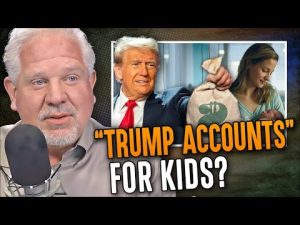In the current political landscape, the notion of a “big tent” within the conservative movement is gaining traction, illustrated by recent events. Notably, we have witnessed an intriguing coalition forming around former President Trump, which includes a spectrum of voters, from devout supporters of Israel to Arab Americans, who have traditionally leaned towards the Democratic Party. This phenomenon showcases the art of political inclusion, where disparate groups find common ground under a single banner despite their differing backgrounds and beliefs.
At a recent rally at Madison Square Garden, a striking visual highlighted this unique coalition. With both staunch supporters waving Israeli flags alongside others who donned traditional Muslim attire, it became evident that Trump’s appeal cuts across various demographics. He has managed to position himself as a pro-Israel candidate, yet also as a peace candidate who resonates with those concerned about Middle Eastern affairs. This crossover appeal is rational; people from both sides see potential in his leadership, indicating a departure from the polarized narratives often peddled by the mainstream media.
However, while this coalition may seem promising, it poses challenges for the conservative movement. Maintaining a clear identity amid such ideological diversity will require careful navigation. Current leadership, exemplified by House Speaker Mike Johnson, finds himself in a precarious position. His attempts to unite various factions – the country club Republicans, neocons, libertarians, traditionalists, and populists – often leave him straddling a line that can easily lead to his downfall. It’s a daunting truth: no matter who assumes such leadership, the likelihood of success in bridging these wide ideological gaps seems slim.
The very essence of what it means to be conservative is at stake. To forge a cohesive identity and move forward as a united front, conservatives must agree on foundational principles. Key among these is the acknowledgment of God and the role this belief has played in America’s history and governance. This basic tenet is not merely about religious belief; it’s about understanding the philosophical underpinnings of our nation. The founding fathers framed our Constitution around these ideals, emphasizing the importance of self-governance rooted in a moral framework.
Ultimately, as conservatives adapt to a changing political environment, they must focus on fostering unity around crucial values. These values include the sanctity of family, the importance of raising the next generation with steadfast morals, and the participation of individuals in self-governance. In a society grappling with fundamental questions about identity and purpose, the conservative movement must strive to reclaim the narrative that recognizes human dignity as created in the image of God, emphasizing intellect, will, and responsibility.
As the coalition continues to form and evolve, the true test will be whether conservative leaders can rally their base around these shared beliefs. The challenge will not only be about embracing diversity but also about ensuring that the core values of conservatism are not diluted in the process. A clear and robust commitment to these foundations will be crucial as the nation moves forward amidst a backdrop of increasingly polarized politics. The future of the conservative movement depends on this delicate balance between inclusion and identity preservation.







